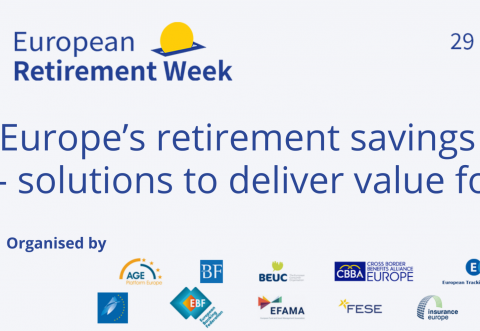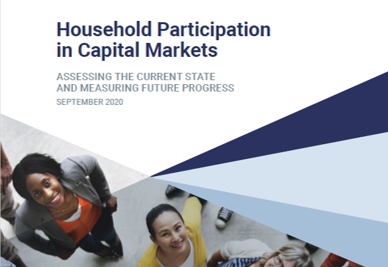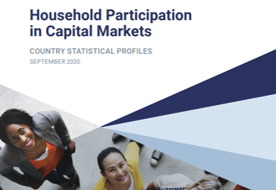Pensions
Pension provision inadequacy will remain a major challenge for Member States and European citizens, particularly in light of Europe’s ageing population and the impact of the Covid-19 crisis on government debt levels. Promoting retirement savings should become a major priority for policymakers, at the national and European level. This would not only support the future financial well-being of citizens but also contribute to strengthening of the Capital Markets Union.
EFAMA strongly supported the Commission’s proposal to create a pan-European Personal Pension Product (PEPP). We will evaluate the development of the market in the coming years and, if necessary, develop proposals for amending the PEPP Regulation. EFAMA will continue to take part in any relevant consultations on pension issues, to ensure the position of our industry is taken into account. We will continue raising public awareness on the importance of saving for retirement, including by playing an active role in the launch of a European Retirement Week, the first edition of which will take in 2021 during the week starting on 29 November. Finally, we will keep a close eye on the IORP Directive and contribute to its review.
EFAMA’s comments on the European Commission’s proposal for a Regulation on a pan-European personal pension product (PEPP)
The PEPP - Engaging the young generation of European savers
EFAMA Response to EIOPA Consultation on PPPs
EFAMA welcomes EIOPA’s consultation and the opportunity to share our views on EIOPA’s recommendations to develop an EU single market for personal pensions.
EFAMA supports the conclusions of EIOPA’s impact assessment:
• The standardization of key elements of a PEPP - as proposed by EIOPA in its advice - with space to accommodate the specificities of Member States, is the best policy option.
• It would be difficult to achieve full standardization via harmonization because this would require bringing all national regulations on PPPs to one level.
Funded pensions, investment funds, and financial education critical to global retirement outcomes
The investment industry and policymakers must co-ordinate efforts to promote funded retirement savings and improve financial literacy to ensure that billions of people can live comfortably in their later years and, in the process, ease the fiscal pressure on governments. Financially-literate individuals are more likely to make better-informed financial decisions and to understand the benefits of long-term investments.
European Retirement Week 2021 opens with keynote by Commissioner McGuinness
The preliminary programme of the inaugural European Retirement Week was presented today. The week will begin with a launch event on 29 November, featuring a keynote speech by Mairead McGuinness, European Commissioner for in the Financial Services, Financial Stability and the Capital Markets Union.
European associations launch European Retirement Week
A group of nine European associations has announced the launch of European Retirement Week, which will take place during the week of 29 November 2021. The goal of this initiative is to provide a platform for a wide range of stakeholders to debate the future of pensions in Europe and to raise citizens’ awareness of the need to save for retirement.
3 Questions to Jonathan Lipkin on the PEPP and EIOPA proposed Level 2 measures
Q #1 Why is the launch of the PEPP of such strategic importance for the funds
industry and overall success of the Capital Markets Union (CMU)?
Above all, the PEPP is a recognition of the importance of individual pension savings at a time
in which European governments have become increasingly fiscally constrained. This has
consequences both for state pension provision and for wider investment in the European
economy.
Household Participation in Capital Markets
This publication precedes the European Commission's forthcoming new Action Plan on the Capital Markets Union (CMU). It includes ten concrete policy recommendations to help advance the CMU, including the introduction of a Key Performance Indicator (KPI) to monitor progress in household participation in capital markets.


































